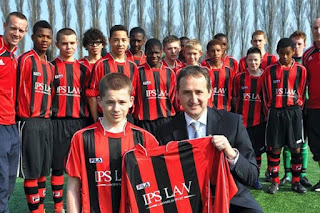Chris Farnell: esports and Gambling
April 12, 2021Esports
Welcome to the Chris Farnell blog. The UK Gambling Commission has stated that video games can be construed as gambling where prizes are available, that these prizes are the equivalent of money or money’s worth, and the game mechanics are such that winning a prize involves a greater degree of chance than skill. However, on the basis that esports, rather than video games, involve sufficient skill to avoid this, the main link between esports and gambling is the ability of individuals to bet on the result of match-ups and competitions as they would on any other sport.

As one of the only sports that can be conducted remotely, esports and gambling on esports saw substantial growth at the start of the COVID-19 pandemic. This is reflected by UK gross gambling yield (GGY) rising from just £0.05million in March 2019 to £3.39million in April 2020. Although customers now can return to betting on their usual preferred sports, the introduction of many bettors to esports is likely to have increased awareness and knowledge that will accelerate growth more quickly than without the pandemic.
Two main issues are being discussed when it comes to gambling on esports – gambling integrity, and gambling advertising:
On integrity, there is an unfortunate track record of players “throwing” a match or using “cheat” software to gain an advantage over an opponent, otherwise known as “edoping”. There have been several instances of match-fixing, particularly in Asia, and there remains no overarching esports regulator to monitor and enforce as you would find in other sports. The industry has started to self-regulate, including the formation of the esports Integrity Commission (ESIC) in 2016.
Gambling operators spend substantial resources advertising through traditional sports. In esports, where children constitute a significant proportion of the target market, this therefore poses a dilemma. Regulation is limited to that already in force, for example, the UK Advertising Standards Authority prohibition of gambling advertising where there is a reasonable expectation that the majority of a user base are underage. However, outside of those circumstances, operators are free to advertise, provided players in the ecosystem permit it.
Check back soon for more!
Chris Farnell IPS Law have worked with some of the the best in the world in their industry, including five time Ballon D’or winner Cristiano Ronaldo & Belgium football team manager Roberto Martinez. Learn more about Chris Farnell here. Follow Chris Farnell Lawyer on his social here. Read the latest Chris Farnell Charlton news here.
 Welcome to the Chris Farnell blog. Chris Farnell advises leading Football League Clubs, media agents, and a number of high profile sporting individuals like Roberto Martinez and Tyson Fury. Learn more about Chris Farnell on this page and come back soon for more updates.
Welcome to the Chris Farnell blog. Chris Farnell advises leading Football League Clubs, media agents, and a number of high profile sporting individuals like Roberto Martinez and Tyson Fury. Learn more about Chris Farnell on this page and come back soon for more updates.
2 comments
Keep sharing!
ReplyDeleteOh very interesting post darling
ReplyDelete